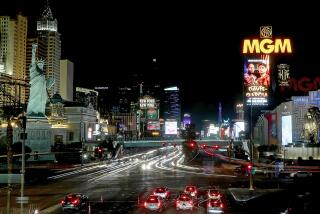Laughing his way to Pearly Gates
FOR a dying man, Art Buchwald was in a jovial mood.
“I’ve put heaven on hold,” he said to me over the phone from a Washington, D.C., hospice, laughing with appreciation at his own comment.
He’s always been that way, having a good time with words, having a good time with the life he’s led as America’s premier political satirist.
One would think that at 80, suffering from kidney failure, still recovering from a leg amputation, that Buchwald might at least be a little anxious or perhaps even somewhat melancholy over the fate he has chosen.
Given a choice between dialysis and death, he opted for the latter, unwilling to endure the procedure that would keep him alive, and unwilling to face the tribulations that old age is heir to.
“I was supposed to have gone to heaven a long time ago,” he said cheerfully, “but I feel better now than I ever have.”
He calls the hospice “a place where you go to die.” He will stay there 90 days, he said, and if he’s still alive, “they’ll kick me out.” He’s been there since Feb. 7.
Mail and e-mails have arrived from around the world to wish him well. Visitors from all walks of life have lined up to see him. The French ambassador awarded him the Legion of Honor. The commandant of the Marine Corps gave him a coin, Buchwald said, “to buy drinks for everyone at the bar.”
He added: “Someone asked me why the commandant came by. I told him they just found out I’d raised the flag on Iwo Jima!” He laughed loudly.
Among the gifts he treasures most, he said, was a cartoon from Paul Conrad, the former Los Angeles Times editorial cartoonist. He could see the similarities in the work they did, both masters at deflating the pompous through humor and satire.
I met Buchwald in 1964, a year after I began writing a column for the Oakland Tribune. He was already a star, a nationally syndicated columnist, a puckish, cigar-smoking World War II Marine who could be as funny in person as he was in his essays.
My column ran in the upper right-hand corner of the Trib’s op-ed page, Buchwald’s in the upper left.
In ‘64, we were both at the Republican National Convention in San Francisco’s cavernous Cow Palace, a rich font of ideas for anyone writing satire. Barry Goldwater was chosen as the Republican nominee for president, and the convention was a raucous celebration of the party’s right wing.
I walked into the pressroom to write between events and was surprised to see Buchwald sitting alone, reading the Tribune. When he saw me, he said, “I like your stuff, kid.” It was a seminal moment for me, a tribute, however casual, coming from the man who’s been called “the patron saint of political satire.” I hadn’t even realized he’d read my work or knew who I was. I can’t remember what we talked about after that, but I knew from that moment on that I was doing it right.
Buchwald belonged to that generation of journalistic stars that included Mike Royko, Herb Caen, Art Hoppe, Russell Baker and Jack Smith. He began writing a column from Paris for the European edition of the New York Herald Tribune in 1948. He returned to the U.S. in 1962 and, writing for the Washington Post, became syndicated in 300 newspapers.
Many challenged him for the title of America’s best satirist, but few could match the gleeful manner in which he viewed politics and politicians.
Even after suffering a stroke six years ago that required two months in the hospital and a rigorous program of therapy, he continued writing. Last month, he had a leg amputated below the knee as a result of poor circulation caused by diabetes, which was also contributing to renal failure. But he still manages a column now and then for the Post.
“I just didn’t want dialysis,” he said when I asked why he had chosen to die instead of allowing science to keep him alive. It would have required being hooked up to a machine for five hours at a stretch, three days a week, for the rest of his life. It was too much time to give to an artificial process. He decided, he told another interviewer, “to enjoy life and see where it takes me.”
He was impressed that after all these years I was still going strong. “You’re fantastic,” he said. It is the nature of all of the columnists I have known and admired to have possessed a generosity of spirit that makes them willing to share the spotlight. They will step aside to allow a newcomer the stage. We are a band of brothers.
Clearly, Buchwald doesn’t know where the next days or the next weeks will take him. I sensed that he was psyching himself into a better mood than he probably felt. It is incomprehensible to me that he would not find at least some remorse in the necessity to choose dying over living. It requires a courage that most of us do not possess. Dying is not the best thing we do.
I, among the millions, wish him well, whatever the future brings. Until I too write my last words, I will bear the memory of the boost he gave to a young columnist many years ago, and know the moment will be weighed with compassion in whatever heaven awaits him.
Al Martinez’s column appears Mondays and Fridays. He can be reached at al.martinez@latimes.com.
More to Read
Sign up for Essential California
The most important California stories and recommendations in your inbox every morning.
You may occasionally receive promotional content from the Los Angeles Times.










